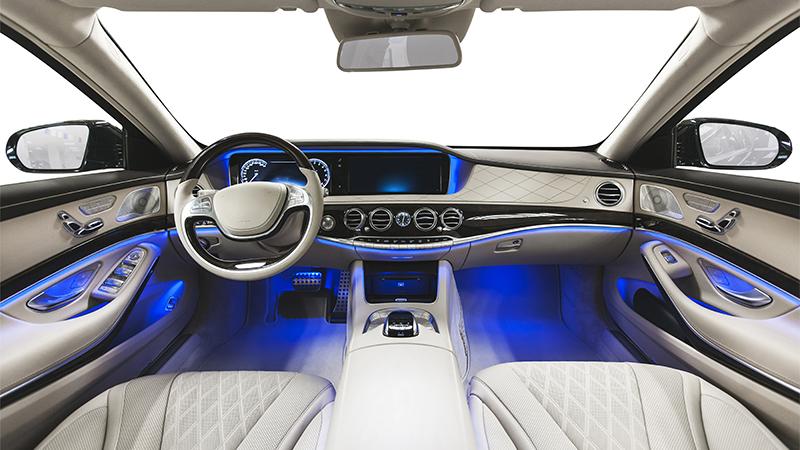Donate your car to charity for a fulfilling way to give back to your community. It’s a simple process that helps those in need and benefits you in various ways. Whether you have an old car collecting dust or want to make a meaningful contribution, donating your car can be a game-changer.
In this article, we’ll walk you through the steps of donating your car, why it’s important, the various types of car donations, and the advantages and disadvantages to consider. By the end, you’ll have everything you need to make an informed and impactful decision.
Advertisement
Why Donate Your Car?
You may be asking yourself, “Why should I donate my car?” The answer is simple: donating your car is a charitable act that can positively affect the lives of others. Whether it’s a vehicle that no longer serves you or one that you’re upgrading, donating it can make a world of difference to those in need. Here are a few reasons why donating your car is a meaningful decision:
- Help Those in Need: Many charitable organizations rely on donations to fund their missions. By donating your car, you’re directly contributing to their ability to provide essential services to those who need it most.
- Environmental Impact: If your car is no longer running, recycling or donating it can help reduce waste. Many charities repurpose vehicles for use in community programs or sell them to fund sustainable projects.
- Tax Benefits: Donating your car can provide you with tax deductions, potentially saving you money come tax season.

The Importance of Donating Your Car
Donating a car is more than just giving away an old item. It’s a valuable contribution that benefits both the recipient and the donor. Car donations help charities provide essential resources to underserved communities, support medical research, assist disaster relief efforts, and much more. By donating, you are playing a part in something larger than yourself—helping others in a way that’s sustainable, practical, and beneficial in the long run.
Furthermore, car donations often help fund important programs such as education, housing assistance, health services, and more. The proceeds from your car donation could support an array of initiatives, making it a powerful way to create change.
Types of Car Donations
There are several types of car donations, depending on how you want your vehicle to be used. Here’s a breakdown of the most common options:
- Vehicle Donation for Auction: This is one of the most popular ways to donate a car. The vehicle is typically sold at an auction, and the proceeds benefit the charity of your choice. It’s a win-win scenario—your car is given a second life, and the charity receives financial support.
- Vehicle Donation for Direct Use: Some organizations accept cars to be directly used in their programs. For example, charities that provide transportation to low-income families, disabled individuals, or veterans may use your car to help their beneficiaries.
- Vehicle Donation for Recycling: If your car is no longer roadworthy, it may be sold for parts or recycled. Many charities partner with auto recyclers to recycle vehicles in an environmentally-friendly way, ensuring that the parts are reused or safely disposed of.

How to Donate Your Car
Donating a car is easier than you might think. Follow these simple steps to donate your vehicle:
- Choose a Reputable Charity: Research charities that accept car donations. Look for organizations that align with your values and have a good reputation. Many charities accept vehicle donations, but it’s important to ensure the one you choose is registered and can provide a receipt for your donation.
- Check Your Car’s Condition: You don’t need to worry about the condition of your car. Most charities will accept vehicles in any condition—running or not. However, it’s important to know whether your car is roadworthy or needs to be recycled. This will help you determine which charity best suits your donation.
- Complete the Paperwork: You’ll need to transfer the title of the car to the charity. The charity will often handle the paperwork, including the title transfer, and provide you with a receipt for tax purposes. Make sure you follow the legal requirements in your state.
- Arrange for Pickup or Drop-Off: Many charities offer free towing services if your car is no longer operational. If your car is still in good condition, you may also be able to drop it off at the charity’s location.
- Claim Your Tax Deduction: After the donation, keep all the documentation, including the receipt, so you can claim a tax deduction when filing your taxes.
Advertisement
Benefits of Donating Your Car
Donating your car offers several benefits, both immediate and long-term:
- Tax Deduction: As mentioned earlier, donating a car to a qualified charity entitles you to a tax deduction. The value of the deduction depends on the sale price of the vehicle, so if the car is sold at auction, you’ll receive a tax receipt for that amount.
- Freeing Up Space: Donating an old or unused car clears up space in your garage or driveway. If you no longer need the car or have upgraded to a newer model, donating it helps you declutter without the hassle of selling it.
- Supporting a Good Cause: One of the most rewarding benefits is the satisfaction of knowing that your donation is making a difference in someone’s life. Whether your car is being used to help a family in need or fund medical research, your donation plays a crucial role.
- No Hassle of Selling: Selling a car can be time-consuming, especially if it’s not in the best condition. Donating your car eliminates the hassle of advertising, negotiating, and dealing with potential buyers.
- Environmental Benefits: Donating your car for recycling helps reduce waste and supports environmentally friendly practices, such as reusing car parts.
- Financial Benefit for Charity: The proceeds from your car donation directly benefit a cause you care about, ensuring your vehicle serves a greater purpose.
Disadvantages of Donating Your Car
While donating a car has many benefits, there are some downsides to consider:
- Potential Lower Tax Deduction: If the car is sold at auction, you may not receive the full market value of the vehicle. This could result in a smaller tax deduction than you might expect.
- Limited Control: Once you donate your car, you lose control over how the vehicle is used. If you had specific plans for your car’s future, such as donating it to a specific program, the charity may repurpose it in another way.
Wrapping Up: Donate Your Car
Donating your car to charity is a simple yet impactful way to give back. Not only does it help others, but it also provides you with the satisfaction of knowing your old vehicle is making a difference. From supporting a cause you care about to gaining potential tax benefits, car donations are an easy and rewarding option for both individuals and communities. Whether you choose to donate for auction, direct use, or recycling, your contribution will have a lasting impact.


